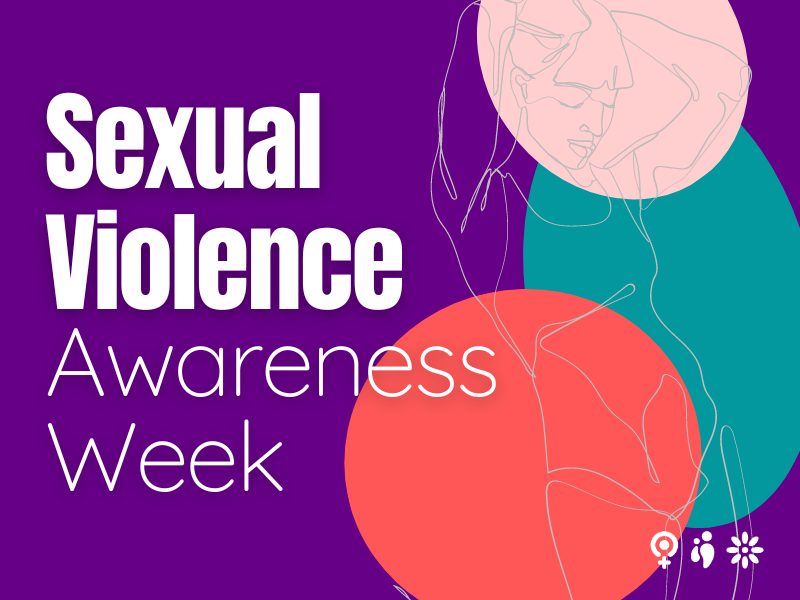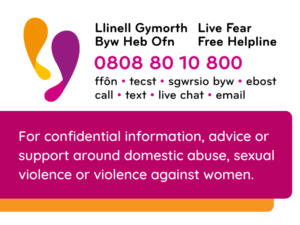
–Yashiba Sanil, Communications and Campaigns Officer
TW: Sexual abuse and violence
Sexual Violence Awareness Week: 5th – 11th February 2024
Sexual Abuse and Sexual Violence Awareness Week provides the opportunity for individuals and organisations to have conversations about these important issues.
This year, it takes place from the 5th – 11th February.
We thought we would take a moment to explain a bit more about the week, why it exists and why it’s important.
History
The week was created to acknowledge the experiences of survivors and help create a society where sexual violence of any kind is not tolerated.
This has led to an annual campaign which helps keep conversations going and brings attention to a topic which often goes unmentioned in society. The week has really gained momentum in recent years, especially on social media, as various organisations, activists and advocates have joined forces to make a difference.
Before delving into the week’s importance, it’s essential to understand the scope of sexual violence. According to the World Health Organization, one in three women globally has experienced either physical or sexual intimate partner violence or non-partner sexual violence in their lifetime. From 2022-23 Wales saw 582 prosecutions for sexual offences, excluding rape, according to the Crown Prosecution Service. It is important to also keep in mind that statistics continue to be skewed due to underreporting of sexual violence as well as apprehension to register cases. However, these statistics emphasise the urgent need to address the issue and create an environment where survivors feel supported and empowered to speak out.
Why is there a designated week?
The week creates the opportunity to reflect on the progress made, but also acknowledges the work that is still needed to combat sexual violence.
The week allows people to come together, share resources, and it provides a safe space for people to have conversations, which at other times they may not naturally come up in conversation.
Sexual abuse or violence is an extremely isolating experience. When people come together to show support for survivors, it normalises the sharing of experiences, gives people confidence to come forward, and helps more people understand the steps they can take to eliminate sexual violence.
Navigating the complex layers of sexual violence:
To understand intricate nature of sexual violence it is important to highlight the role of intersectionality. Acknowledging the diversity of human experiences, intersectionality emphasises that individuals face unique challenges based on the intersections of their identities, such as race, gender, sexuality, and socioeconomic status. This lens allows us to comprehend that the impact of sexual violence is not uniform; it varies across different communities and groups. During this week, we must intentionally consider the intersecting factors that influence an individual’s vulnerability and resilience in the face of sexual violence.
This week serves as a platform to not only amplify the voices of survivors but also to address the unique challenges faced by marginalised communities, ensuring that our awareness, education, and advocacy efforts are intersectional. By embracing this framework, we contribute to a more inclusive understanding of sexual violence, fostering an environment where the experiences of all survivors are validated, and our collective response is sensitive to the diverse factors shaping the impact of sexual violence on different individuals without leaving anyone behind.
How can I get involved?
Addressing sexual violence is not the sole responsibility of survivors but a collective duty shared by society as a whole. This week calls us to examine our attitudes, challenge harmful stereotypes, and actively engage in the fight against sexual violence. By fostering a sense of collective responsibility, we contribute to a culture where everyone feels accountable for creating a world free from the shackles of sexual violence.
During the week, there are several in-person and online events. Look out for organisations, charities, schools, businesses, and community groups hosting events, talks and resources.
There is a #itsnotok hashtag to follow on social media, and there are always resources available on the Welsh Women’s Aid website, as well as support through the Live Fear Free helpline.
There is always support available.
Survivors often bear the weight of trauma in silence, burdened by societal stigma. Sexual Violence Awareness Week emphasises the importance of creating safe spaces where survivors feel heard, believed, and supported. If you, or someone you know, has experienced domestic abuse, sexual violence, or any other form of violence against women and children, you can call Live Fear Free.
The helpline is free, and available 24 hours a day, 7 days a week.
The experienced helpline advocates guarantee you will be met with a friendly, supportive and understanding response, and can discuss your concerns and provide help, support and information.

Abuse can happen to anyone.
Speak to Live Fear Free for 24/7 free confidential support and advice.
Call 0808 80 10 800
Text 0786 007 7333
Email [email protected]
Visit www.gov.wales/livefearfree

